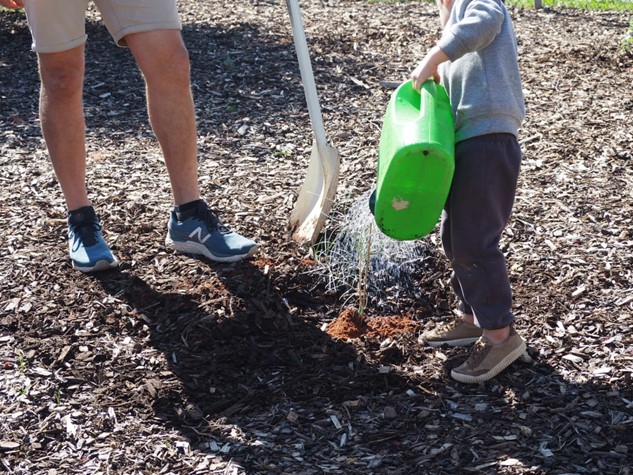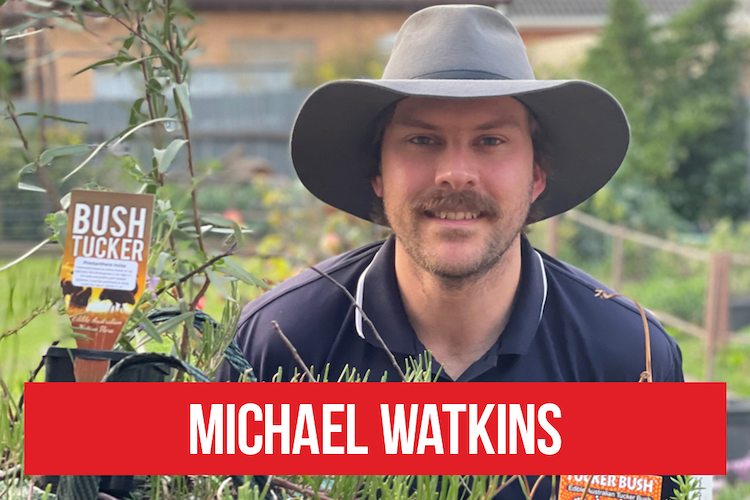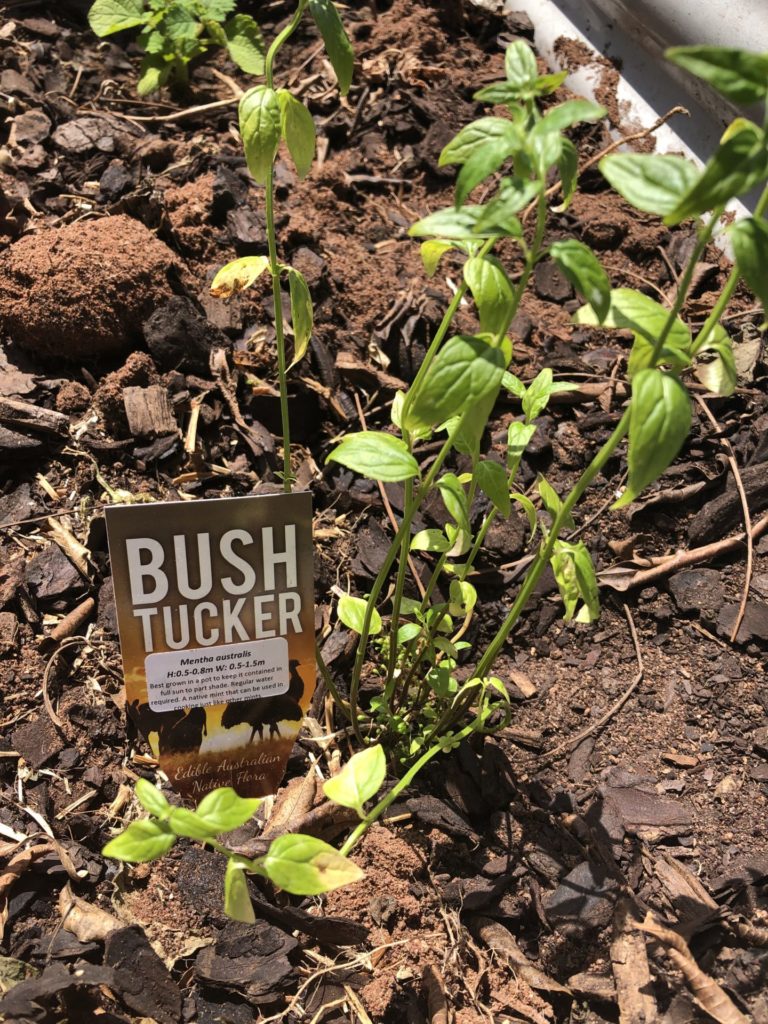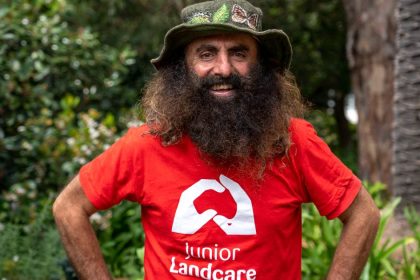A bush foods garden cultivated in the heart of Barngala Country is hoping to grow cultural connectedness among young Aboriginal people in a move to positively affect their health and life trajectories.
The bush foods program is part of the Aboriginal-led ROOTS initiative and is driven by members of the Aboriginal community in Whyalla, South Australia. They worked with University of South Australia researchers – along with the South Australian Department for Education – to co-design, deliver, and evaluate the education and connection program.
Last week, the Medical Research Future Fund announced a $500,000 Indigenous Health Research Grant to advance the work – funding that will help support the initiative’s aim to highlight the health benefits of connecting to culture and cultural practices, using garden-based activities to educate and build knowledge.
Cultural connectedness supports better health
Chief Investigator and UniSA Aboriginal allied health and nutrition expert, Michael Watkins, says cultural connectedness is a protective factor for Aboriginal children and young teenagers and welcomes the partnership between the UniSA Department of Rural Health, Hincks Avenue Primary School, and Gabmididi Manoo Children and Family Centre.

“Aboriginal young people and families are the ones participating in this project and the research,” Mr Watkins told EducationDaily. “This program has been co-designed and is co-delivered with our local education site partners and embedded into the local curriculum. It will be delivered to Aboriginal students and leaners from ages four-12. Key messages of the program will be shared through its delivery and the evaluation results will be shared amongst school and broader community once completed.”
The program incorporates sharing bush food cultural knowledges in the garden and on Country; exchange between young people, families, Elders, and cultural and language groups; cooking with bush foods; social events, preparing bush medicine; identifying, propagating, planting, and harvesting bush foods; nutrition activities; artworks; and educational resources.
Nurturing the growth of good food and cultural connection
The local early childhood and family centre Gabmididi Manoo and the Aboriginal Women’s Yarning Group are current custodians and hosts of the bush foods garden and the ROOTS program.
“It’s vital that we draw upon the strengths and capacity of the Aboriginal community, Elders, and leaders – they are the experts, they know the answers, and they understand how the project needs to be done,” Mr Watkins says. “By weaving together Aboriginal and Western ways of research we’re hoping for impactful outcomes which will not only benefit Aboriginal people but the community as a whole.”

Mr Watkins told EducationDaily that “connection to culture and cultural activities are a significant determinant of health for Aboriginal People and communities”.
“This program aims to deliver a cultural bush food program ensuring Aboriginal young people at the school sites and engaged with their culture during school. Due to the ongoing impacts of colonisation and access to Country, ensuring Aboriginal young people and communities are connected to their traditional foods and medicines are essential in overall health and wellbeing through an Aboriginal lens.”

This research, he says, hopes to measure the impact of a bush foods cultural program on the cultural health and wellbeing of Aboriginal young people through a mixed methods approach.
“While bush foods and cultural food knowledges are widely promoted as having a positive impact on Aboriginal health, there is a lack of evidence to support outcomes and feasibility in an urban setting,” Mr Watkins says. “The bush foods garden uses food-based activities to encourage cultural exchanges, nurture traditional knowledge of bush foods, cooking and medicines, and revitalise Aboriginal culture and cultural practices.
“By supporting Aboriginal young people to learn more about traditional practices, we hope to extend their life trajectory by building cultural identity, wellbeing and resilience, and strengthen their sense of empowerment, connectedness, and engagement with learning.”
The team is now working with Aboriginal partners and the Hincks Ave Primary School to embed the bush foods garden program into the school curriculum, where it will be delivered by local community members and Elders.







